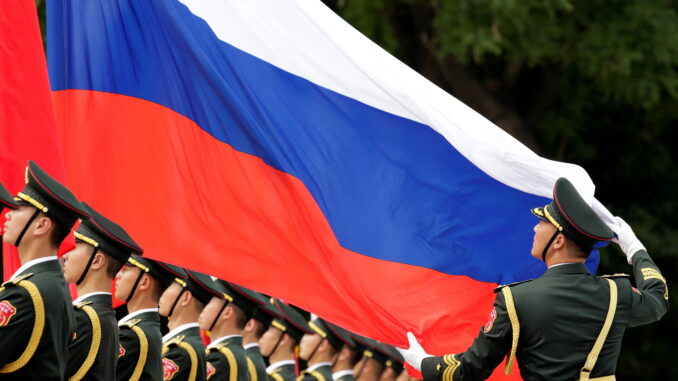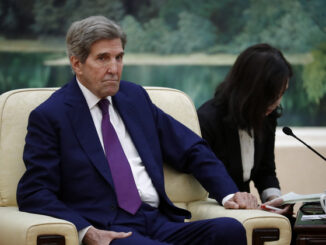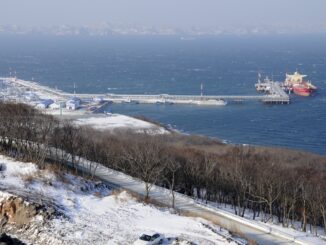
Asia’s purchase of Russian crude is unlikely to be deterred by issues relating to insurance after the G7 base price regime is implemented next month, though logistical challenges will have to be tackled, several maritime executives said.
Most oil and product tankers of 45,000 dwt size and above, participating in international trade take transnational maritime insurance cover. This is provided by global companies so that regardless of where the cargo is moving, the coverage is not affected.
The latest round of sanctions against Russia have queered the pitch. UK, the hub of several maritime insurance companies, categorically announced it will not permit insurance cover for ships carrying Russian oil. A similar approach was expected from the European Union and the US as well.
“While mainstream insurance industry will not provide cover to such trade, to and from Russia but there are several smaller entities in Asia which will do so,” a senior executive at a Western Protection and Indemnity, or P&I Club said.
There were several insurance providers in China which would be available to offer such facility to Russian cargoes, and even if they are reluctant, government will tacitly ask them to do so, the executive said. Chinese government officials could not be reached for comment on the matter.
Currently, most of these cargoes are covered by the Russian P&I providers, a shipping and oil analyst in Oslo said.
A Singapore-based maritime insurance executive said unlike the Western P&I Clubs, which have a coverage and reinsurance chest valued into billions of dollars, the alternative insurance being taken by ships carrying Russian commodities is much smaller.
However, such lower value insurances were being used, nevertheless, to keep the trade running, he said.
The International Group, or IG, comprises 13 P&I Clubs, which between themselves provide marine liability cover to almost 90% of the global tonnage.
Liabilities, which exceeded the individual Club retention, currently set at $10 million are shared between all 13 Clubs in accordance with the terms of a Pooling Agreement. These can potentially run into several billion dollars.
Most sources across Asia said despite insurance related hassles, the volumes of oil shipped was unlikely to slow down, at least not to India and China. Russia has already emerged as the largest supplier of crude to India, a far cry from the pre-war era when it barely had a presence in India’s import basket.
Circumspect, proactive clubs
Since Japan’s P&I Club is part of the 13-member IG, so trade with Tokyo requires more transparent procedures. But shipping industry executives were quick to point out that Japan was a relatively smaller player in global crude trade.
A bigger player in energy trade, which may find it difficult to skirt around the sanctions regime is South Korea, they said.
P&I Clubs provided cover for third party liabilities such as loss of life, injury and illness of crew, passengers and other persons cargo loss, shortage or damage, collision and pollution.
There is a built-in clause in all protection and indemnity, or P&I insurance agreements, that any voyage of a ship to a sanctioned location under UN, EU, UK and US laws will automatically be ineligible for the cover.
Until around eight years ago, taking refuge under this clause, some P&I clubs could feign ignorance if a tanker would load cargo from Iran, which was then under sanctions. However, when sanctions were again imposed on ships carrying Iranian crude, P&I Clubs were far more careful.
“Western P&I Clubs can no longer sit back and say they do not care. They are more active and may even invalidate the insurance cover of the entire fleet of those companies which flout the rules,” the same executive at a Western P&I Club said.
Discounted crude, freight premium
According to shipping sources across Asia, notwithstanding the long arm of sanctions, there were still several tanker companies willing to load Russian oil and oil products even without insurance cover, but it is not a practical proposition because destination ports many not permit berthing without this prerequisite.
“The entire system is too tempting to ignore, importing countries do not want to give up on the cheaper oil while ship owners are keen on the premium they get on freight,” a chartering executive with a global commodities trading company said.
This is resulting in a two tier system of those ships which move Russia cargoes and those who do not. Those shipping companies who are listed at stock exchanges in Europe and the US cannot afford to do so.
In an interview with S&P Global Commodities Insights in September, Maersk Tankers’ COO Eva Birgitte Bisgaard said it is not possible for tanker companies such as Maersk to move base price linked Russian oil to non-EU countries because the P&I clubs’ insurance cover will not be available.
A shipping broker in Copenhagen said this will not be a deterrent for several other non-listed maritime companies.



